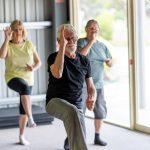
If you’re looking for a healthy way to eat that has stood the test of time, the Mediterranean diet may be your best bet. “There are many health benefits to the Mediterranean diet,” said Rahaf Al Bochi, a spokesperson for the Academy of Nutrition and Dietetics. “The Mediterranean diet has been associated with lower risk for heart disease, diabetes, some cancers, and cognitive decline. It is also associated with improved fertility and pregnancy outcomes.” But exactly what is the Mediterranean diet? “The Mediterranean diet emphasizes plenty of vegetables, fruits, beans, lentils, whole grains, nuts, seeds, olive oil, herbs and spices,” Al Bochi said. “Dairy, fish and poultry are consumed a few times a week, whereas red meat and processed meat is enjoyed less frequently.” It also emphasizes mindfulness and enjoyment of food. “Part of that is to be mindful of your body’s hunger and fullness cues, to guide you on the amount of food to be consumed, and that would help you reach your health goals,” she said. “The Mediterranean diet is more than just foods to eat,” Al Bochi said. “It is a lifestyle that encourages eating with friends and family, socializing over meals, mindfully eating food and incorporating daily movement.” How to begin the Mediterranean diet “To get started, focus on one food you can add to your meals and build on that… read on > read on >


















